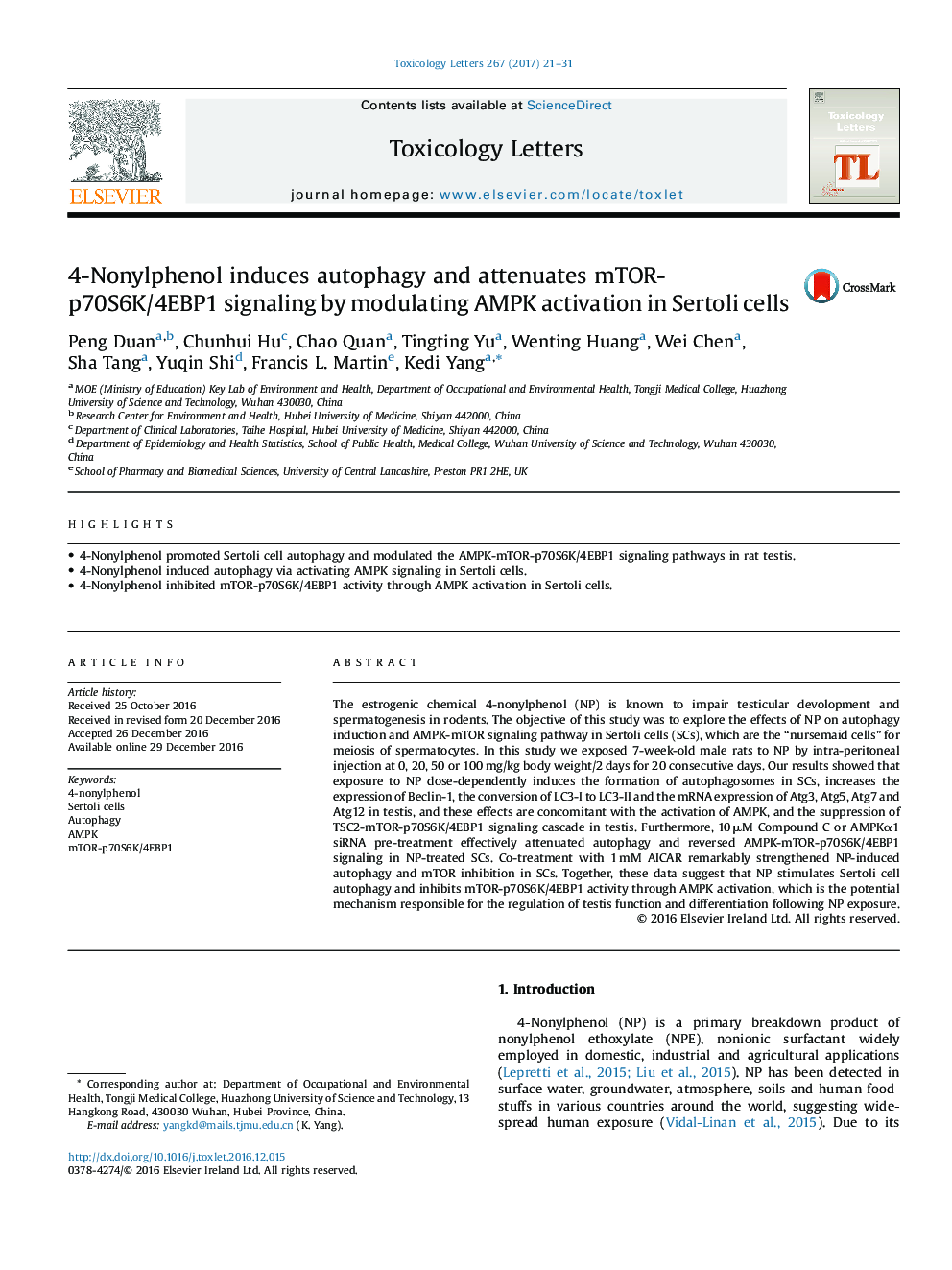| Article ID | Journal | Published Year | Pages | File Type |
|---|---|---|---|---|
| 5562226 | Toxicology Letters | 2017 | 11 Pages |
â¢4-Nonylphenol promoted Sertoli cell autophagy and modulated the AMPK-mTOR-p70S6K/4EBP1 signaling pathways in rat testis.â¢4-Nonylphenol induced autophagy via activating AMPK signaling in Sertoli cells.â¢4-Nonylphenol inhibited mTOR-p70S6K/4EBP1 activity through AMPK activation in Sertoli cells.
The estrogenic chemical 4-nonylphenol (NP) is known to impair testicular devolopment and spermatogenesis in rodents. The objective of this study was to explore the effects of NP on autophagy induction and AMPK-mTOR signaling pathway in Sertoli cells (SCs), which are the “nursemaid cells” for meiosis of spermatocytes. In this study we exposed 7-week-old male rats to NP by intra-peritoneal injection at 0, 20, 50 or 100 mg/kg body weight/2 days for 20 consecutive days. Our results showed that exposure to NP dose-dependently induces the formation of autophagosomes in SCs, increases the expression of Beclin-1, the conversion of LC3-I to LC3-II and the mRNA expression of Atg3, Atg5, Atg7 and Atg12 in testis, and these effects are concomitant with the activation of AMPK, and the suppression of TSC2-mTOR-p70S6K/4EBP1 signaling cascade in testis. Furthermore, 10 μM Compound C or AMPKα1 siRNA pre-treatment effectively attenuated autophagy and reversed AMPK-mTOR-p70S6K/4EBP1 signaling in NP-treated SCs. Co-treatment with 1 mM AICAR remarkably strengthened NP-induced autophagy and mTOR inhibition in SCs. Together, these data suggest that NP stimulates Sertoli cell autophagy and inhibits mTOR-p70S6K/4EBP1 activity through AMPK activation, which is the potential mechanism responsible for the regulation of testis function and differentiation following NP exposure.
